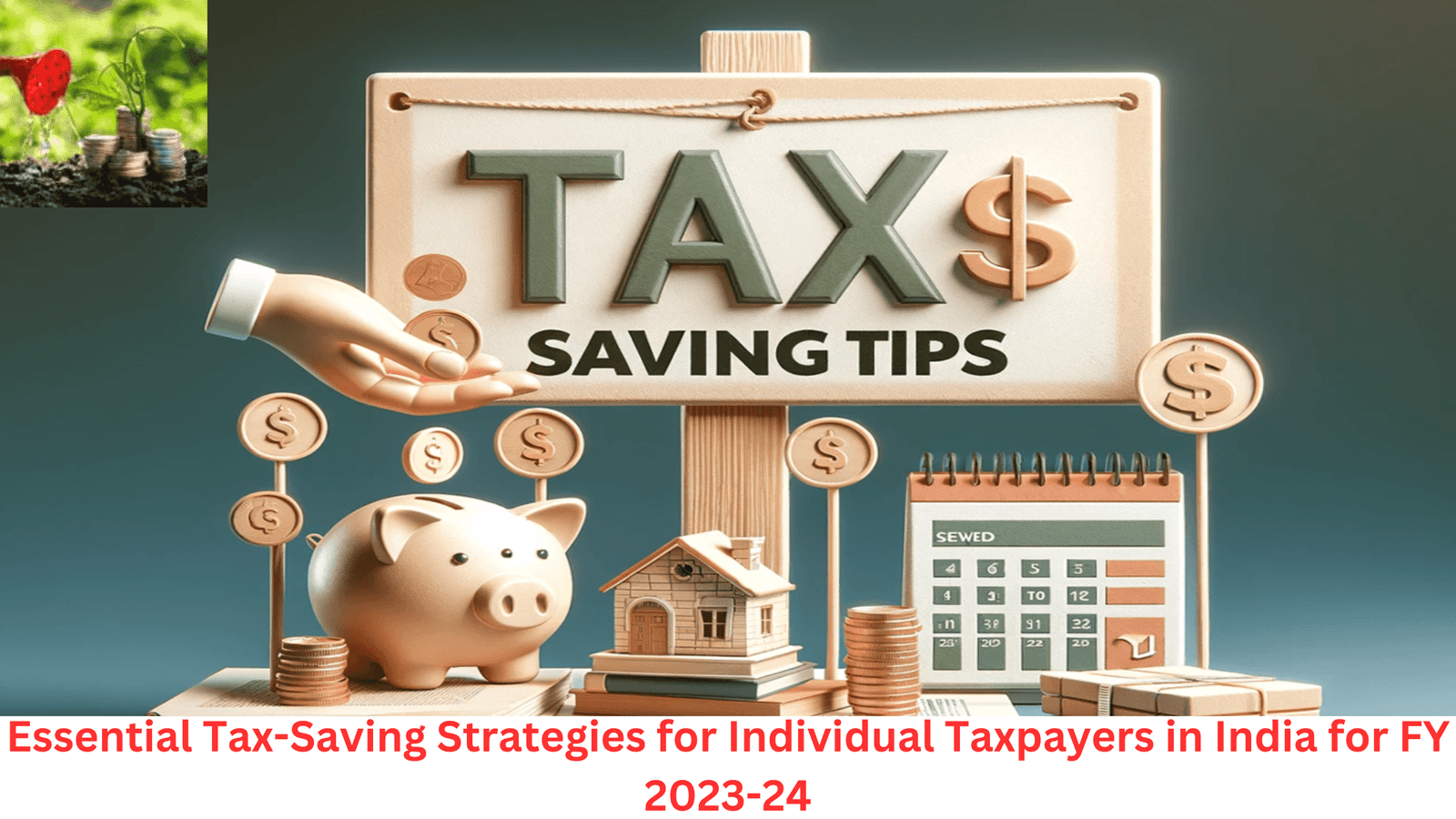Essential Tax Saving Strategies for Individual Taxpayers in India for FY 2023-24
Taxes are an inevitable part of our financial lives, and understanding how to navigate through them efficiently can significantly impact one’s finances.
As the financial year 2023-24 progresses, individual taxpayers in India are looking for effective strategies to minimize their tax liabilities while maximizing their savings.
In this article, we delve into essential tax-saving strategies tailored for Indian taxpayers, offering detailed insights and examples to guide you through the process.
Introduction
Tax-saving strategies play a crucial role in financial planning, helping individuals optimize their savings while ensuring compliance with legal requirements.
By strategically utilizing various provisions of the Income Tax Act, taxpayers can reduce their taxable income, thereby lowering their overall tax burden.
Understanding the Indian Tax System
Before delving into specific tax-saving avenues, it’s essential to grasp the fundamentals of the Indian tax system.
India follows a progressive tax structure, where individuals are taxed at different rates based on their income levels.
Additionally, various types of taxes, including income tax, capital gains tax, and goods and services tax (GST), contribute to the overall tax landscape.

Key Tax-Saving Avenues
Several provisions within the Income Tax Act offer opportunities for individuals to save on taxes.
Understanding and effectively utilizing these avenues can lead to significant tax savings.
Some of the primary tax-saving instruments include deductions under Section 80C, health insurance premium deductions, home loan interest deductions, and investments in Equity Linked Savings Scheme (ELSS) and Public Provident Fund (PPF).
Maximizing Deductions under Section 80C
Section 80C of the Income Tax Act provides for deductions up to a specified limit on certain investments and expenses. Taxpayers can claim deductions for investments in instruments such as…
Leveraging Health Insurance for Tax Benefits
In addition to providing financial security, health insurance policies offer tax benefits under Section 80D of the Income Tax Act.
Taxpayers can claim deductions on premiums paid towards health insurance policies for themselves, their spouses, children, and parents.
Utilizing Home Loan Interest for Deductions
Owning a home not only fulfills a fundamental need but also offers tax benefits on the repayment of the home loan. Under Section 24 of the Income Tax Act, taxpayers can claim deductions on the interest paid on home loans.
Exploring Investment Opportunities under ELSS and PPF
Investing in tax-saving instruments such as ELSS and PPF not only helps individuals save taxes but also facilitates wealth creation over the long term.
Tips for Effective Tax Planning
While understanding the various tax-saving avenues is crucial, effective tax planning involves more than just maximizing deductions.
Conclusion
As the financial year 2023-2024 progresses, individual taxpayers in India have ample opportunities to minimize their tax liabilities through strategic planning and prudent investment decisions.
FAQs
1. Can I claim deductions for investments made in previous financial years?
– Yes, investments made in eligible instruments within the specified timelines can be claimed for deductions in the relevant assessment years.
2. Are there any tax-saving options beyond Section 80C?
– Yes, taxpayers can explore deductions under sections such as 80D (health insurance premiums), 24 (home loan interest), and 80G (donations to specified funds).
3. Is there a maximum limit on deductions under Section 80C?
– Yes, the maximum deduction allowed under Section 80C is ₹1.5 lakh per annum, which includes contributions to various investment avenues such as EPF, PPF, life insurance premiums, etc.
4. Can I claim deductions for tuition fees paid for my child’s education?
– Yes, tuition fees paid for the education of up to two children can be claimed as deductions under Section 80C.
5. What documents do I need to provide to claim tax deductions?
– Taxpayers need to keep receipts, investment statements, premium payment receipts, and other relevant documents as proof of their investments and expenses to claim deductions during the filing of income tax returns.
Finally, Thank you for reading by blog on “Essential Tax Saving Strategies for Individual Taxpayers in India for FY 2023-24”.
If You have any question related to “Essential Tax Saving Strategies for Individual Taxpayers in India for FY 2023-24”, Please comment below.

